Ukraine war: Investigators link Nord Stream gas pipeline sabotage to Kyiv
Investigators unearthed new evidence in the sabotage of Russia’s Nord Stream gas pipeline that points to shell company whose owner has previously unknown links to the war.
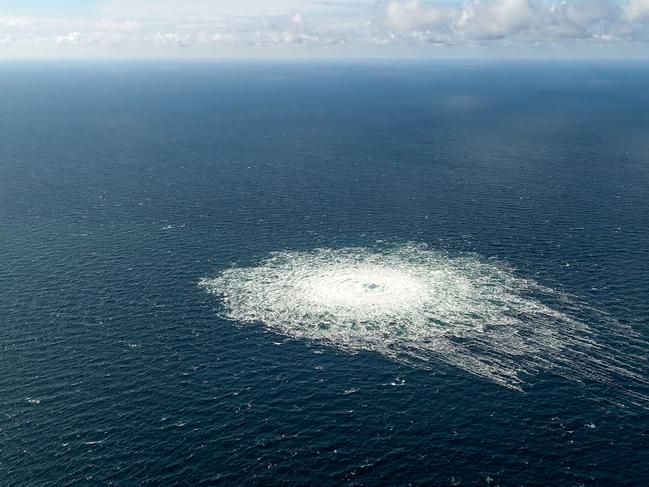
World
Don't miss out on the headlines from World. Followed categories will be added to My News.
Investigators looking at the explosions on the Nord Stream gas pipelines from Russia have evidence that could link the attack to Ukraine, according to German media reports.
Metadata from the emails used to rent a sailboat suspected to have been used in the attack tie them to Ukraine, Spiegel weekly reported Friday.
The president of the presumed shell company through which the “Andromeda” yacht was hired also lives in Kyiv, according to research by broadcasters NDR and WDR, daily Sueddeutsche Zeitung and international media partners.

German investigators had also identified a Ukrainian man in his mid-twenties with ties to the military who they believe may have been part of the six-person team manning the yacht, according to the joint report.
The links to Ukraine corresponded with assessments by multiple intelligence services, according to Spiegel.
The agencies were examining whether the attack could have been carried out by an independent Ukrainian commando group or if a government-backed unit was more likely, the weekly said.
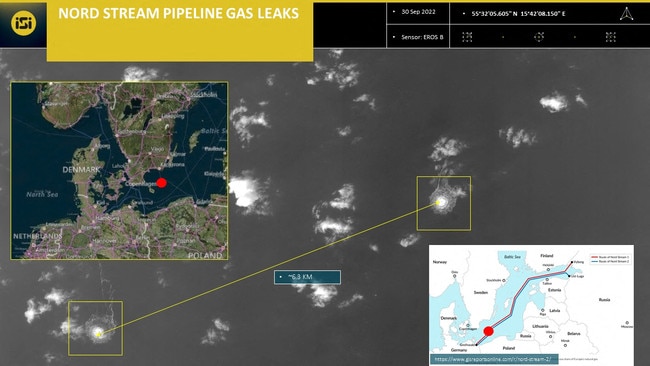
A potential false flag operation, used by the Russians to pin the blame on someone else, has also not been completely ruled out.
Separate reports have pointed out that a Russian navy vessel specialised in submarine operations was photographed near the sabotaged Nord Stream gas pipelines just prior to the mysterious blasts in September.
The pipelines had been at the centre of geopolitical tensions as Russia dwindled gas supplies to Europe in suspected retaliation to sanctions over Moscow’s invasion of Ukraine.
Western countries were quick to blame the explosions under the Baltic Sea on Russia following the incident, while the Kremlin has accused the West of sabotage.
German, Swedish and Danish authorities have been investigating the blasts that sparked the leaks.
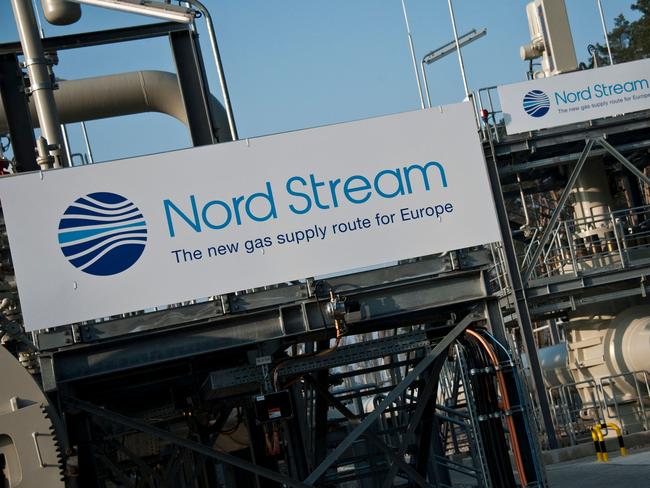
‘IT’S GOING TO BE BLOODY’
Russia will not achieve a military victory in Ukraine, top US officer General Mark Milley said while also cautioning that Kyiv is unlikely to force out all of Moscow’s troops anytime soon.
His comments underlined forecasts that the war in Ukraine is set to drag on, with neither side positioned to win a clear-cut victory and no negotiations currently taking place.
“This war, militarily, is not going to be won by Russia. It’s just not,” Mr Milley told journalists during a virtual meeting of dozens of countries that support Ukraine.
Mr Milley said Russia’s original strategic objectives, including overthrowing the government in Kyiv, “aren’t achievable militarily, they’re not going to be done”.
At the same time, there are hundreds of thousands of Russian soldiers in Ukraine, making Kyiv’s objective of recapturing all of its territory unlikely “in the near term,” he said.
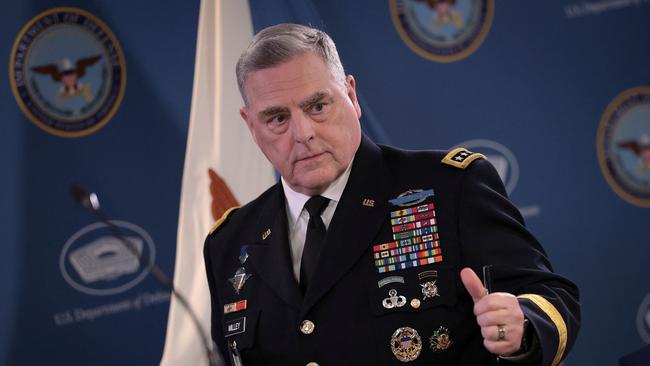
“That means fighting is going to continue, it’s going to be bloody, it’s going to be hard. And at some point, both sides will either negotiate a settlement or they’ll come to a military conclusion.”
The United States has spearheaded the push for international support for Ukraine, quickly forging a coalition to back Kyiv after Russia invaded in February 2022 and co-ordinating aid from dozens of countries.
In total, Ukraine’s supporters have provided nearly $US65bn ($A100bn) in security assistance to the country, US Defence Secretary Lloyd Austin said.
The White House said last week that Washington would support providing advanced warplanes including F-16s to Ukraine, dropping previous reluctance to do so.
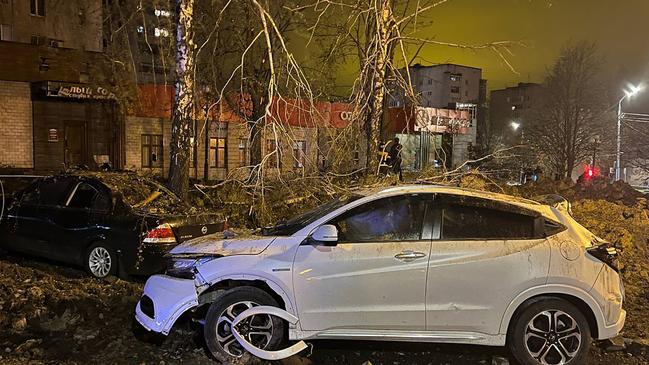
On Thursday, Kyiv’s supporters “discussed plans for training Ukrainian pilots on fourth-generation fighter aircraft, including the F-16.”
Austin said alongside Milley, noting that “planning and executing this training will be a significant undertaking.”
The US defence chief said that a fund may be established for financial contributions to aid the effort from countries that do not have F-16s or the capabilities to assist directly with training, maintenance or sustainment.
Mr Milley said the US shift in favour of providing Kyiv with the warplanes by saying that doing so earlier in the conflict would have taken funds away from more immediate needs, while building Ukraine’s air force is a long-term endeavour.
“It’s going to take a considerable length of time to build up an air force that’s the size and scope and scale that’ll be necessary,” he said.
RUSSIA MOVES TACTICAL NUKES INTO BELARUS
Belarusian leader Alexander Lukashenko said Russia has begun moving nuclear weapons to its western neighbour and ally.
There were no new comments from Russia on bringing the nuclear weapons to Belarus.
“The transfer of nuclear munitions has begun,” Lukashenko told reporters during a visit to Moscow.
Lukashenko has allowed his territory – which borders Ukraine as well as EU and NATO members Poland and Lithuania – to serve as a launching pad for Russia’s Ukraine offensive.
In March, Putin announced he would station tactical – or short-range – nuclear weapons to the territory of Belarus, drawing condemnation from the West.
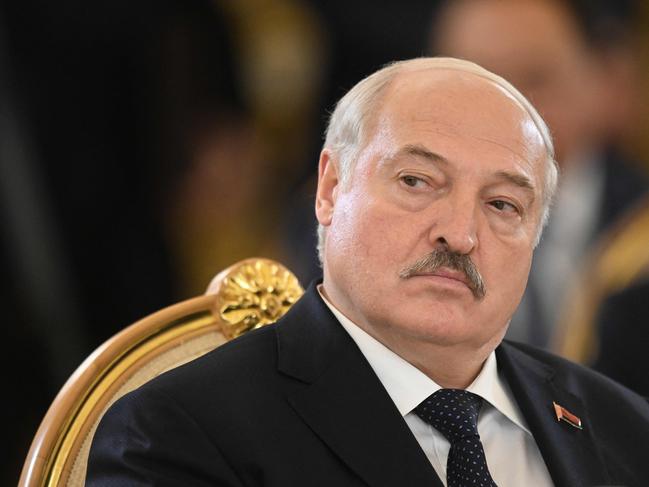
Lukashenko said Putin had informed him on Wednesday that he had signed a decree on the transfer.
Belarusian opposition leader Svetlana Tikhanovskaya on Thursday said the move would ” not only endanger the lives of Belarusians but also create a new threat against Ukraine and all of Europe.” “It will make Belarusians hostages to Russian imperial ambitions,” Tikhanovskaya added.s
Tactical nuclear arms are battlefield weapons that, while devastating, have a smaller yield compared to long-range strategic weapons.
Putin’s announcement had spurred fears of nuclear conflict, but experts and governments said it was unlikely that the move would change the course of the conflict.
Belarusian troops began training on nuclear-capable Russian missile systems in April.
BRUTAL TRUTH ABOUT RUSSIAN RECRUITS
At least 10,000 prisoners recruited by Wagner to fight in Ukraine have been killed on the battlefield, according to the head of Russian mercenary group Yevgeny Prigozhin.
Last year, Mr Prigozhin toured Russian prisons in a bid to convince inmates to fight with Wagner in Ukraine, in exchange for a promised amnesty upon their return should they survive.
Convicts are believed to have been used as cannon fodder in Ukraine, accounting for most of Wagner’s losses in the pro-Western country.
“I took 50,000 prisoners of which around 20 per cent were killed,” Mr Prigozhin said in a video interview published late Tuesday.
Mr Prigozhin said a similar percentage were killed among those who had signed a contract with Wagner, but did not give a precise figure.
Both the mercenary outfit and regular Russian troops said at the weekend that the flashpoint town of Bakhmut in eastern Ukraine had fallen, but Kyiv said Ukrainian forces continued to fight for it.
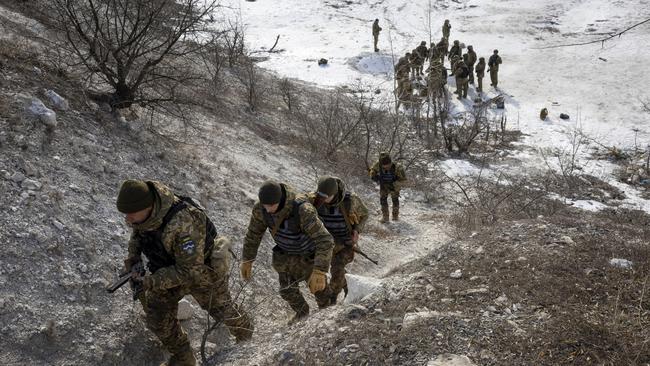
Mr Prigozhin, whose influence has risen hugely during the more than year-long offensive, has scathingly criticised Russia’s top brass, accusing them of being responsible for huge losses.
He has accused Russian Defence Minister Sergei Shoigu and Chief of the General Staff Valery Gerasimov of being incompetent and causing excess losses.
“There are now tens of thousands of relatives of those who were killed. Probably there will be hundreds of thousands. We cannot hide from this,” he said.
He called on Russia’s military elite to send their own children to the front. Mr Prigozhin, a businessman close to President Vladimir Putin, has slammed the Russian elites, saying their children live comfortably while men from impoverished regions die in Ukraine.
Mr Prigozhin said his fighters will pull out of the destroyed city by June 1 and transfer control to the Russian army.
In early May, the White House said that more than 20,000 Russian troops have died and another 80,000 were wounded in five months of fighting in eastern Ukraine, particularly in Bakhmut.
MOSCOW BOMBS ‘SABOTEURS’ OUT OF RUSSIA
Russia said it deployed jets and artillery to destroy an armed group that penetrated the border from Ukraine, while the Kremlin demanded the military prevent any repeat attack.
The incursion was the most serious since Moscow launched its large-scale offensive in Ukraine last year, prompting the Kremlin to express “deep concern” and the evacuation of nine villages in the southern region of Belgorod.
The defence ministry’s announcement that it resorted to the air force and artillery on Russian territory confirmed an unprecedented use of force domestically since the offensive began.
“In the course of the counterterrorist operation, the nationalist formations were blocked and destroyed by air strikes and artillery fire,” the Russian ministry said.
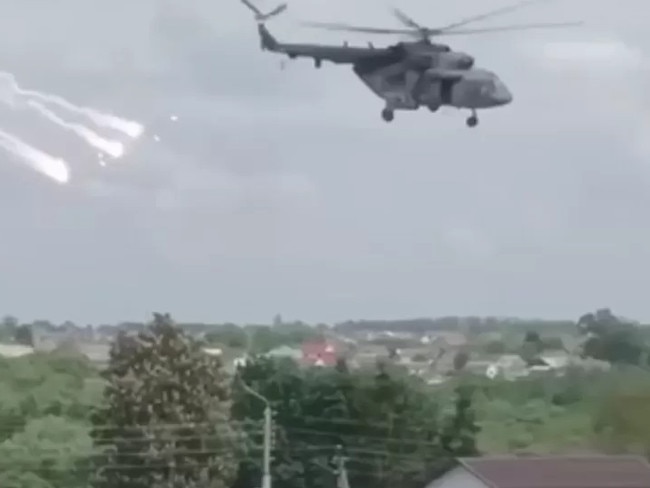
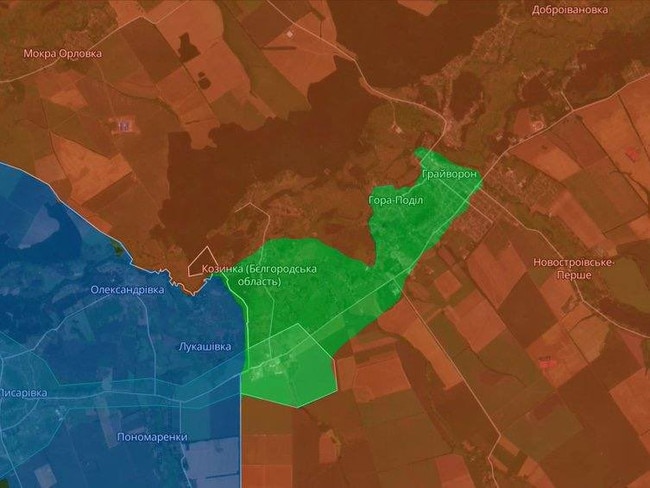
“The remaining (fighters) were driven back to the territory of Ukraine, where they continued to be hit by fire until they were completely eliminated,” it said.
Authorities said 12 people had been injured with the Belgorod region coming under sustained artillery and mortar fire during the fighting.
Moscow reported Russian forces killed more than 70 Ukrainian fighters and destroyed four armoured vehicles, but the claims were unable to be independently verified.
Kremlin spokesman Dmitry Peskov said Moscow needed to avoid further Ukrainian incursions into Russia and voiced “deep concern”, calling for “more effort from us … so that this does not happen again”.
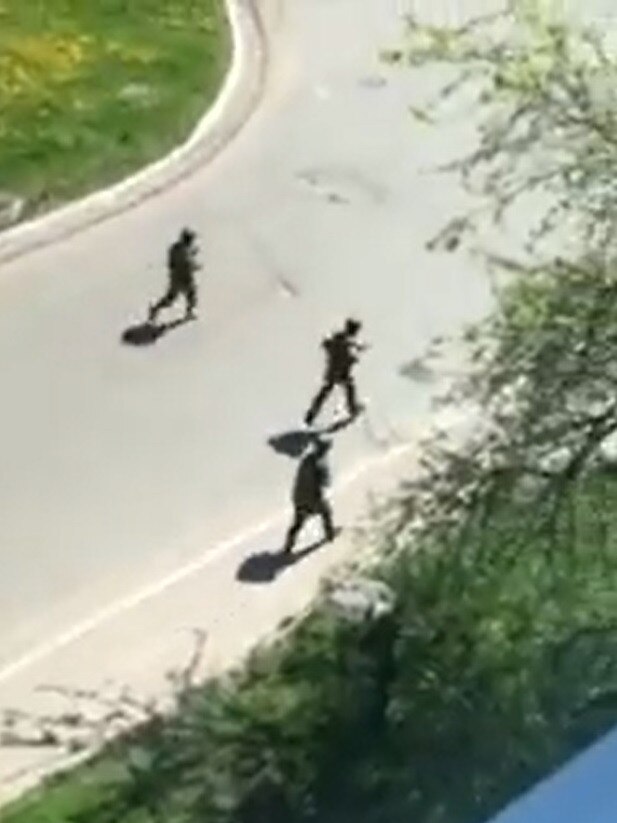
US JOURNALIST DETENTION EXTENDED
A Russian court on Tuesday extended by three months the detention of Evan Gershkovich, a Wall Street Journal journalist who was arrested in March on claims of spying that he denies.
Gershkovich’s pre-trial detention was due to expire on May 29 and the hearing in Moscow to extend the term was held behind closed doors.
“The court granted the investigator’s request to extend the … detention until August 30,” state-run agency RIA Novosti reported, citing the court press service.
Moscow says the sensitivity of the espionage charges means the trial must be held in private and court documents are not being made public.
Gershkovich, who previously worked for AFP, is the first foreign journalist arrested in Russia on spying charges since the collapse of the Soviet Union.
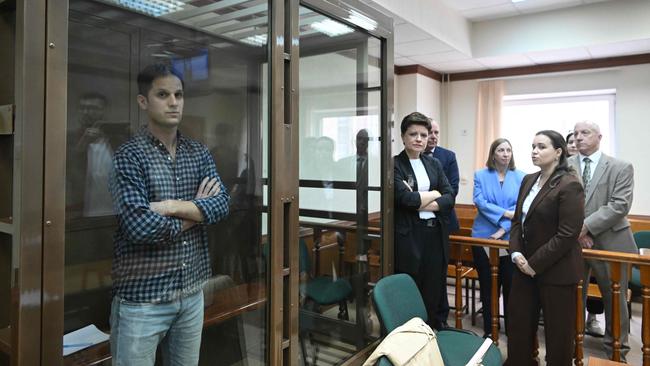
He has denied the accusations, and so have The Wall Street Journal and US officials.
In Washington, State Department spokesman Matthew Miller told reporters that the United States wanted the “immediate release” both of Gershkovich and Paul Whelan, a detained former marine.
Miller said the United States did not assist Gershkovich’ parents, who attended the hearing. The United States has warned its citizens of the risks of visiting Russia.
“I will just say personally, I can only imagine how difficult it must be to see your child detained overseas – especially to be detained wrongfully – and so I’m certainly not going to criticise any parents for wanting to see their child,” Miller said.
Gershkovich is being held at Moscow’s Lefortovo prison, which is famous for keeping detainees in near-total solitude.
RUSSIA BATTLES ARMED GROUP
The governor of Russia’s southern region of Belgorod, the scene of a reported armed incursion of a “sabotage” group from Ukraine, said authorities were helping people leave the area under attack.
“The situation here continues to be extremely tense,” governor Vyacheslav Gladkov said, adding that authorities were going door to door to notify local residents.
“I hope that our military will complete their task in the nearest future.”
Moscow said on Monday its troops were battling a Ukrainian “sabotage” group that infiltrated Russian territory as Kyiv insisted it is still fighting for control of the flashpoint eastern city of Bakhmut.
The announcement of the latest incursion in the southern region of Belgorod came after Ukraine said Russian forces pummelled the eastern Ukrainian city of Dnipro with missiles and drones overnight.
Russian authorities said they had introduced an “anti-terror regime” in Belgorod, which has been attacked since the start of Russia’s invasion of Ukraine in February last year.
A similar regime – which gives special powers to security services and places a number of curbs on the public – was in place in Chechnya between 1999 and 2009.
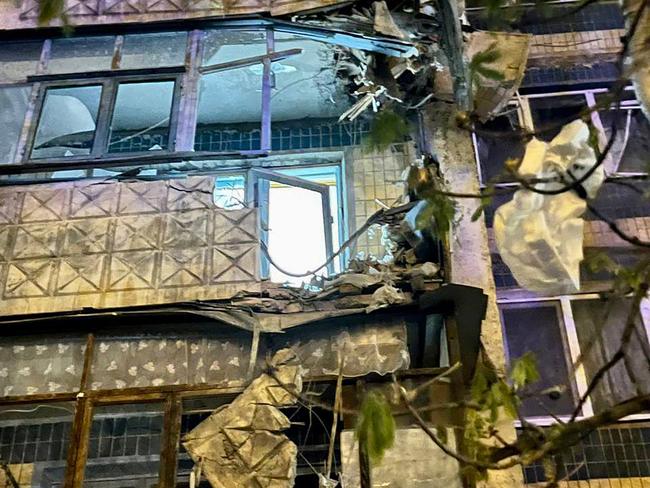
“In order to ensure the safety of citizens in the Belgorod region, the legal counter-terror regime has been introduced today,” governor Vyacheslav Gladkov said.
He also said that at least six people were injured in an attack and most were in hospital with shrapnel and other wounds.
The Kremlin said President Vladimir Putin had been informed of the cross-border incursion, adding Moscow believed the attack was designed to “divert attention” from Bakhmut.
Gladkov said troops and members of the FSB security service were “taking the necessary measures to eliminate the enemy.”
He said three people from the town of Graivoron received shrapnel wounds.
Members of the anti-Kremlin Freedom of Russia Legion claimed responsibility for the attack.
In a video released by a Telegram channel claiming to represent the group, a camouflaged spokesman, surrounded by armed men in fatigues, said: “Russia will be free!”, using a slogan frequently used by Russian opposition activists.
“We want our children to grow up in peace and be free,” the spokesman added. The Telegram channel said that two settlements including Graivoron had been attacked.
Kyiv denied involvement.
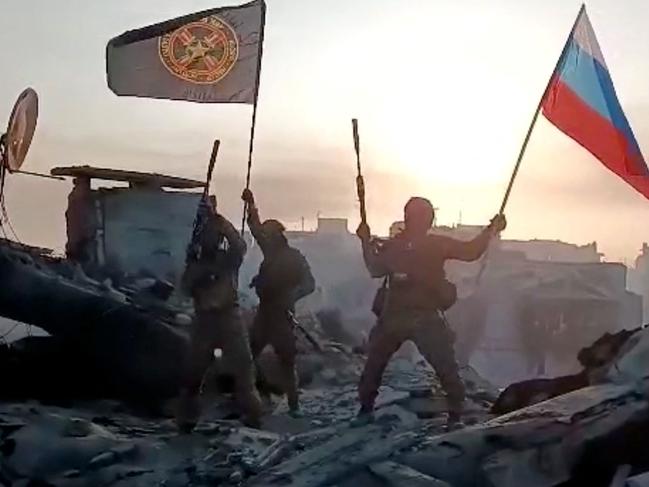
WAR OF WORDS OVER KEY CITY
Ukrainian President Volodymyr Zelenskyy said that Bakhmut was “not occupied” by Moscow, while the head of Russia’s Wagner mercenary group insisted his fighters had taken control of the eastern city “to the last centimetre.”
Kyiv’s military said it was hanging on to a small part of the city and said its troops were advancing on its flanks.
Bakhmut, a salt-mining town that once had a population of 70,000 people, has been the scene of some of the bloodiest fighting in Moscow’s more than year-long Ukraine offensive.
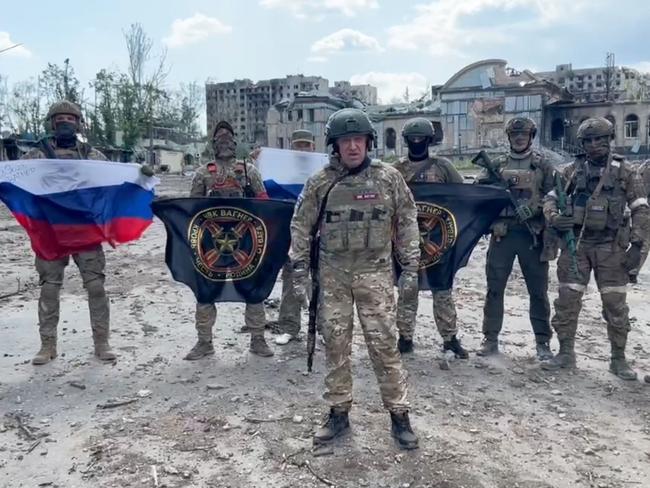
A day earlier, Wagner and Moscow’s regular army claimed to have fully captured Bakhmut, with Russian President Vladimir Putin congratulating them on the alleged conquest.
But speaking at the G7 summit in Hiroshima, Mr Zelenskyy denied Russia’s claims.
“Bakhmut is not occupied by Russia today,” he said during a press conference on Sunday.
“I cannot share with you the tactical views of our military. The most difficult thing would be if there was some tactical mistake in Bakhmut and our people were surrounded.”
Sitting next to US President Joe Biden, Mr Zelenskyy suggested it would be a Pyrrhic victory for Moscow.
“You have to understand there is nothing” there in Bakhmut, he said on the sidelines of the summit in Japan.
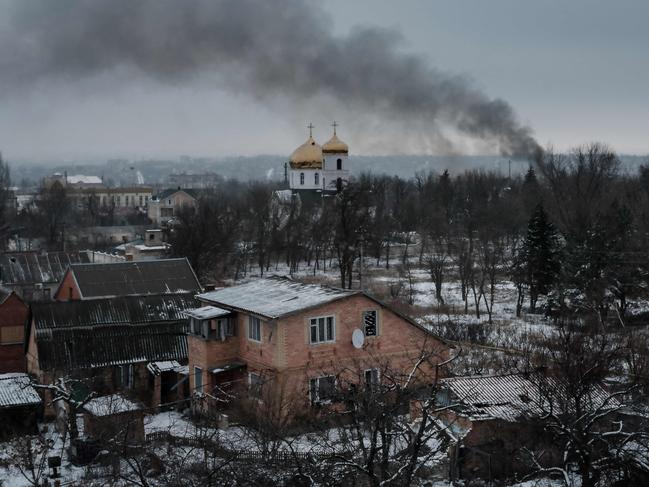
Mr Zelenskyy compared the “absolute total destruction” in Bakhmut to the devastation in Hiroshima when the US dropped an atomic bomb on the Japanese city in 1945.
“There is absolutely nothing alive (there).” The Ukrainian army on Sunday said it retained an “insignificant” part of the city and that soldiers were advancing in from the city’s outer limits.
“We continue to advance on the flanks in the suburbs of Bakhmut,” said Oleksandr Syrsky, the commander of Ukraine’s ground forces.
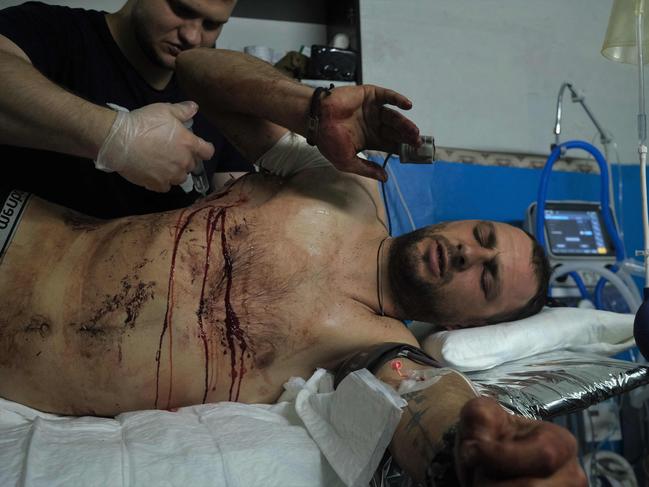
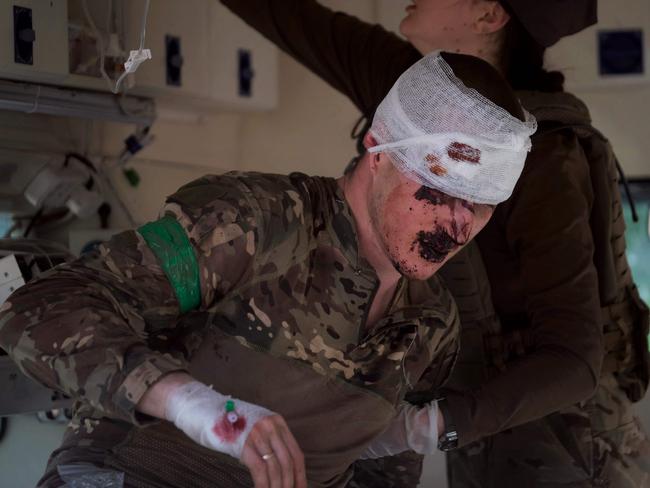
But Yevgeny Prigozhin, the chief of Wagner whose fighters have spearheaded Russia’s advance on Bakhmut, insisted that there were no Ukrainian troops there.
“There is not a single Ukrainian soldier in Bakhmut as we have stopped taking prisoners,” Wagner chief Yevgeny Prigozhin said in a post on Telegram.
“There are a huge number of corpses of Ukrainian soldiers.”
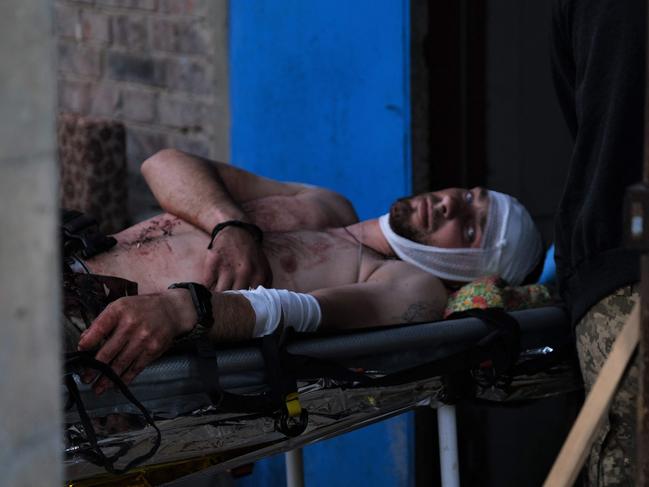
Mr Prigozhin said that Mr Zelenskyy was either not telling the truth or “like many of our own military leaders, simply does not know what is happening on the ground, this is a possibility.” On Saturday, he had announced that his fighters had taken full control of Bakhmut.
Mr Prigozhin said Wagner would hand over control of Bakhmut to the regular Russian army by May 25.
The loss of Bakhmut would be hugely symbolic for the Ukrainians, who had held on for months, ignoring US advice behind the scenes to focus elsewhere.
But some analysts have said Ukraine has inflicted heavy losses on Russia in Bakhmut and forced it to commit large resources, potentially weakening its defences in other parts of the front line.
The fall of Bakhmut, where both Moscow and Kyiv are believed to have suffered huge losses, would allow Moscow to bring home a key victory after a series of humiliating defeats.
It would also come before a major counteroffensive that Kyiv has been preparing for months.
Mr Zelenskyy himself has warned that the city’s loss would open the way for Russian troops to capture more of the Donbas region.



